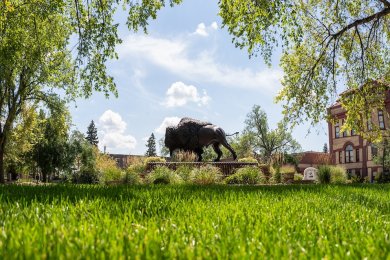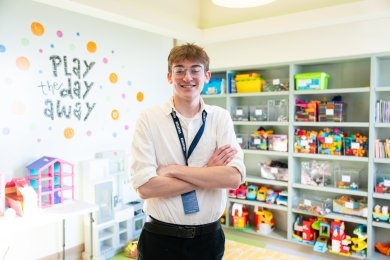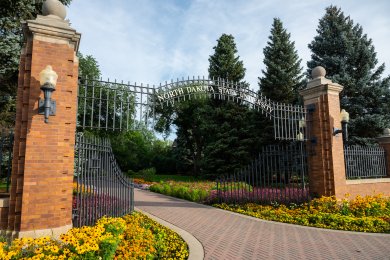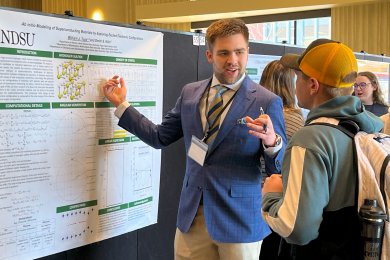
Aaron Feickert, a senior studying mathematics and physics at NDSU, spent his summer working with the largest and most powerful particle accelerator in the world. The Large Hadron Collider analyzes the physics that occur during a collision of protons and the particles that are created during the collisions. Physicists use the data to search for new particles, verify physical models of the universe and discover new physics at high energies.
Feickert researched a detector on the collider, known as the Compact Muon Solenoid. He conducted a study on the effect of proposed upgrades to one of the calorimeters, a device to measure the energy of particles created in collision. Since last summer's research, Feickert has learned that he will get to participate in similar opportunities made possible by the Department of Defense's Science, Mathematics, and Research for Transformation (SMART) Scholarship.
"I greatly value the opportunity this program provides to make a real difference in the scientific programs of the nation," Feickert said. "This is a fantastic opportunity to do what I love and be encouraged in my academic endeavors while serving my country."
The scholarship is an effort by the Department of Defense to recruit scientists, mathematicians and engineers within the government. It is available for the duration of the recipient's degree, be it undergraduate or graduate, and provides full tuition payment, health insurance and a generous stipend for each year of degree progress. In addition, each recipient is assigned to a defense laboratory where they will fulfill a summer internship and work full time after graduation for the length of time equal to the number of years for which the scholarship was awarded.
Feickert learned about the scholarship through an advertisement on campus and applied. Two defense laboratories contacted him, offering research positions. In one laboratory, he would perform feasibility testing on biological defense projects with the Army. In the other position, he would design control systems for the master atomic clocks in Washington, D.C., with the Navy.
He accepted the second position and will travel to the Naval Observatory to meet with staff in January. Since he is in the final year of his degree, he is not required to complete a summer internship.
After Feickert graduates in May, he will begin work at the Naval Observatory for one year. He will work with master atomic clocks, which are a collection of extremely accurate timepieces that use atomic-level measurements to track time. These clocks provide the precise time used by military, GPS systems, cellular phones and network time.
"I'm looking forward to gaining a deeper understanding of atomic physics, a subject about which I know little," Feickert said. "I also am very excited to be able to work on projects that have direct applications to so many technologies that we use every day."
After Feickert completes his work with the Navy, he plans to attend graduate school for mathematics or physics. He enjoys both disciplines, but has not chosen one yet for future study.




